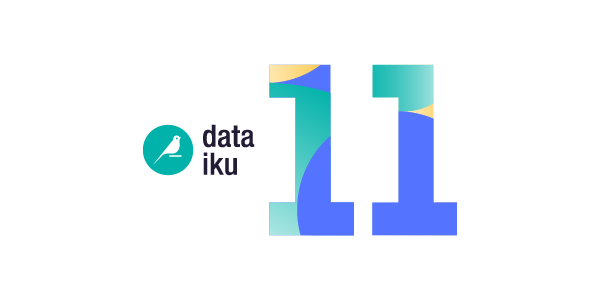Current analytics and AI development processes don't scale for many companies because they are too manual, disconnected from business functions, and lack transparency and necessary controls. Analytics leaders now understand that delivering AI and machine learning (ML) at scale will not be achieved by hiring an army of technical experts. Instead, companies will have to create more projects and provide more value with the people and resources they already have. To create value from AI, companies must make data science more efficient and effective, empower tech-savvy people across the business to build predictive analytics, and ensure that the projects are robust, transparent, and ready for production.

Engage Your Expert Technical Community
Expert data scientists, data engineers, and ML engineers are some of the most valuable and sought-after jobs today. Yet, talented data scientists can spend most of their time setting up and maintaining environments, preparing data, and helping to put projects into production. Dataiku already provides a collaborative project environment so data analysts can help with data preparation, and IT operations can help with MLOps.
In Dataiku 11, advanced technical profiles get the expert treatment so they can do more and deliver more value from AI projects. New code studios in Dataiku embeds popular IDEs like JupyterLab, VSCode, RStudio, and webapp frameworks (including StreamLit) directly in Dataiku, so tech experts can work in the tools they know without the setup and management and efficiently contribute to Dataiku projects. Experiment tracking provides a central interface to store and compare all model runs made from notebooks or IDEs, including those built in MLFlow. The feature store allows easy access and sharing of reference datasets containing curated features suitable for reuse in experimentation and production. Visual deep learning delivers object detection and image classification use cases out-of-the-box. Managed labeling helps accelerate computer vision use cases by allowing project managers to set up and manage image labeling projects with teams of expert annotators.
Check out the Dataiku 11 code studios feature in the video above.
Empower Your Skilled Workforce
Scaling the use of AI takes more than just enabling experts. Letting the people who know both the business and the data take the next step to create AI and ML projects for their areas can unleash the potential of AI in an organization. Think of the technical marketers segmenting customers and wondering how to prevent churn or finance teams building forecasts with desktop tools. These users have specialized skills, and they can quickly work on a new set of problems with the right tools in their hands.
Check out the Dataiku 11 visual time series feature in the video above.
Dataiku 11 continues to empower subject matter experts, citizen data scientists, and knowledge workers with the visual, no-code tools to deliver use cases to move the business forward. Visual time series forecasting enables data professionals to design, train, evaluate, and deploy forecasting models without coding. Owners can easily share objects with quick sharing, so teammates reuse them in their projects. Outcome optimization accelerates what-if analysis by intelligently finding the optimal set of input values to a regression model that will maximize, minimize, or target a predicted outcome. A new create if, then, else statement processor in the Prepare recipe assists with constructing complex/nested statements, saving time in data preparation while increasing transparency.
Expand Executive Confidence and Control
The hidden secret to scaling up AI is managing trust and risk to the organization. Organizations cannot afford to roll out projects that will fail in production or result in biased outcomes for customers. Dataiku 11 continues the pursuit of Responsible AI practices and AI Governance with new capabilities. The flow document generator provides a quick and easy way to create a detailed snapshot report listing all the information about what's in your project flow. Along with the model document generator, this provides everything that companies need to document the current state of projects and models.
Before putting projects into production, it is essential to subject models to conditions they did not see in training. Model stress tests put models through a battery of stress tests simulating potential data quality issues to check behavior and performance under adverse conditions. Like model governance in Dataiku 10, bundle governance allows for comprehensive governance of Dataiku project bundles, including analytics pipelines and project artifacts with a bundle registry and approval workflow.
Check out the Dataiku 11 flow document generator feature in the video above.
Dataiku 11, which will be available in July, is a pivotal release for organizations to deliver on the promise of Everyday AI. This packed release provides new capabilities for expert teams to deliver more value at scale, for tech-savvy workers to take on new challenges, and more AI Governance so executives can ensure that projects are robust, transparent, and ready for production.





